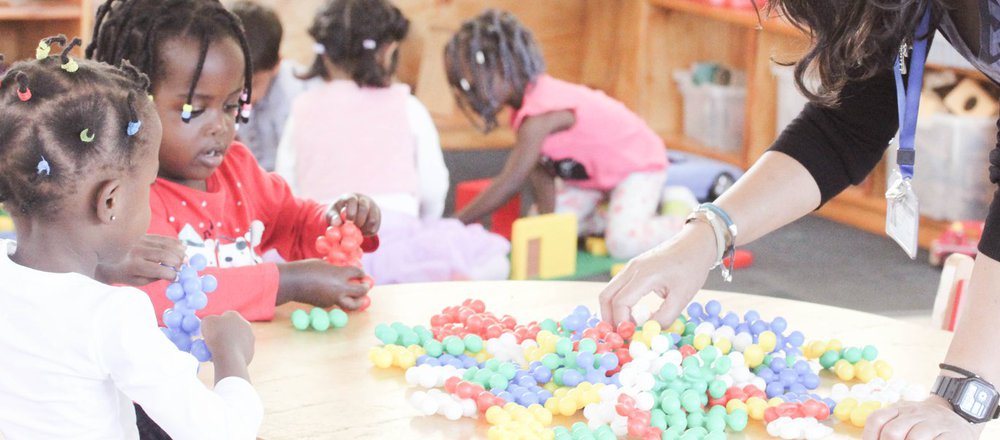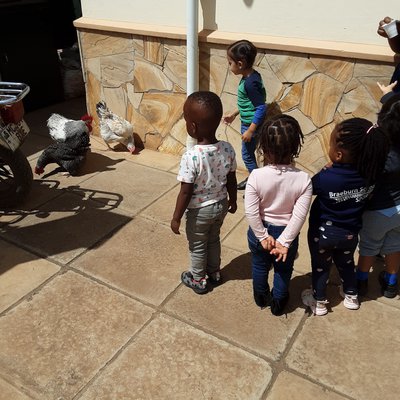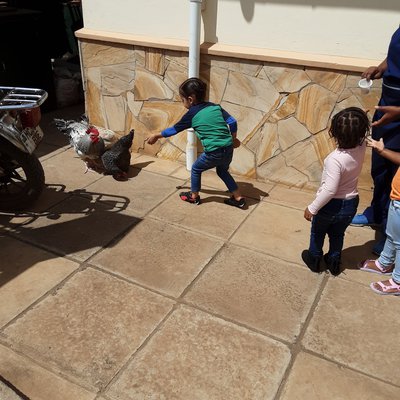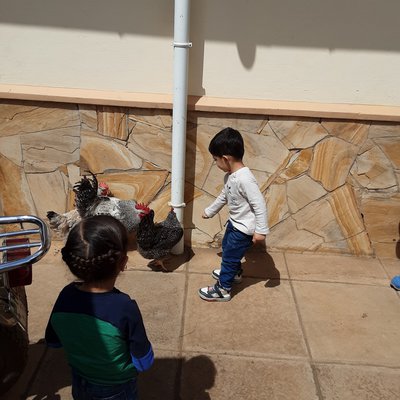Learning in-the-moment in EYFS

25th May 2022
Young children have a natural desire to learn, explore and question.
We were out on an insect hunt and we heard the sound of a rooster. The children we really captured and asked where the rooster is. We
followed the sound and stumbled on three chickens near the school gate.
“Three kukus!” One of the children said.
“They have feathers!” Another one shouted.
“Look! Its flapping the wings like this!”
Dada Esther was quick to get for us some rice to feed the birds. Some children were unsure about moving closer but after a while they
became comfortable and even agreed to feed the chickens.



The idea of "in the moment" learning is to capture the interest of a child or children in the present moment. These teachable moments are about recognising that children learn in an unconscious way during informal interactions.
Babies are born with billions of brain cells and with stimulation these cells connect and form synapses. This is brain development, this is a child making “progress”, this is when a brain is “lit up”. Without stimulation the brain will not develop fully. Brain activity and synapse formation are at their highest when a child is deeply engrossed in something which fascinates, challenges and makes them happy.
Every child is unique and we cannot predict or impose what will spark that deep fascination. Each child is at a different level of development and therefore something that will challenge one child will be mundane for the next. Equally one child will be at their happiest digging in the mud while another will enjoy sitting and drawing a wonderful picture.
Our skilled EYFS team are experts at this and you will see our EYFS settings organised so that each child can excel in their own unique way.
Our EYFS team are skilled at:
- Being Strong Observers – The ability to pay close attention and see exactly what a child is doing.
- Looking Beyond The Obvious – Looking beyond the obvious and see the real interest that is being displayed. It’s difficult to extend an interest as superficial as ‘football’. But moving things around, propelling objects, or throwing and catching? That’s something you can work to extend and expand.
- Improvising – Having the confidence and ability to think on your feet, answer the right questions, and come up with suggestions is central to our practise.
- Using their Child Development Knowledge – Sustained shared thinking, schemas and a broad understanding of how children develop allow our team to support as our littlest learners grow and develop.






